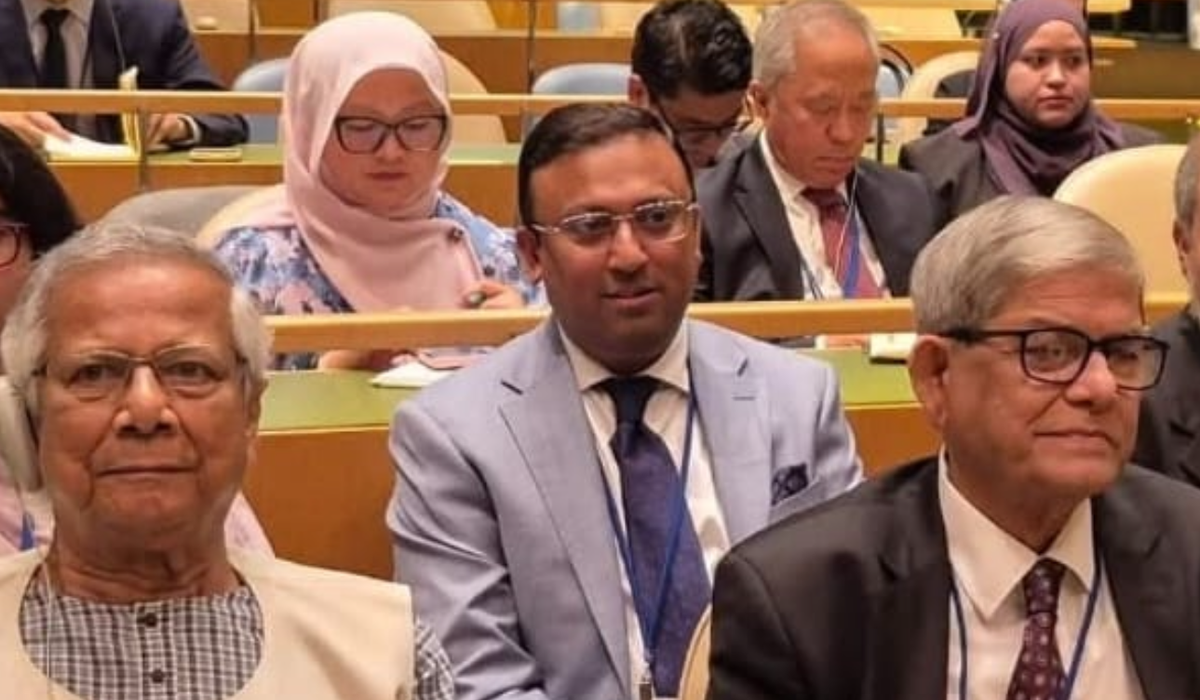


Bangladesh should look beyond India and China and embrace closer ties with the U.S. as it seeks to chart a new political course after more than a decade of autocratic rule, according to top officials from a leading party in the Southeast Asian nation’s upcoming elections.
China and India have long dominated Bangladesh’s politics, trade and defense, holding sway over the regime that controlled the geographically strategic nation for decades before its ouster two months ago.
With Bangladesh now preparing to hold its first post-authoritarian democratic elections next year, Secretary-General of the Bangladesh Nationalist Party (BNP) Mirza Alamgir and senior foreign policy adviser Humaiun Kabir say Dhaka must diversify its diplomatic partners.
“We have a foreign policy where we are friends to everybody, and we want to be friends to America as well as India, as well as China and Europe,” Mr. Alamgir told The Washington Times in an exclusive interview. “In fact, the U.S. has been one of the largest investors in Bangladesh. So this would be a natural alliance between the USA and Bangladesh.”
His comments, made on the sidelines of the U.N. General Assembly gathering, come amid great-power jockeying between the U.S. and China over precarious democracies in Southeast Asia.
India, whose geopolitical posture straddles delicate relationships with both Washington and Beijing, is seen to have held the most sway over the politics in Dhaka in recent decades.
Two BNP officials said the administration of ousted Prime Minister Sheikh Hasina prioritized India to the point of jeopardizing Bangladesh’s ability to negotiate bilaterally with other power players in Southeast Asia.
“The last autocratic regime of Sheikh Hasina was totally dependent on India, and its foreign policy was India-centric. We want to move away from that. We don’t want to be dependent on any other country,” Mr. Kabir said. “We believe that a democratically elected government can apply a balanced position in negotiating with any country, whether it’s China, India, U.S., Japan, or Europe.”
Ms. Hasina resigned as prime minister in August 2024 amid weeks of massive student-led protests sparked by changes to Bangladesh’s government job quota system. Protestors surrounded her residence and she was eventually forced to flee to India, ending a 15-year rule.
Since her resignation, Bangladesh has been ruled by Chief Advisor Fakhruddin Ahmed, who has led a caretaker government before the first post-Hasina elections in February 2026.
During Ms. Hasina’s time as prime minister, India and Bangladesh enjoyed a productive relationship, finalizing a major border demarcation agreement that ended 40 years of conflict, participating in joint military exercises and entering into various trade agreements, which have increased and facilitated trade between the two nations.
At the same time, Ms. Hasina attempted to bolster relations with China to possibly generate more leverage while negotiating with India. In 2024, she traveled to Beijing for a face-to-face meeting with Chinese President Xi Jinping. Ms. Hasina was seeking a $5 billion loan from China to ease some of Bangladesh’s economic pains stemming from the country’s foreign exchange crisis.
However, the meeting was unproductive and China was only able to offer a $140 million loan. Still, Beijing and Dhaka remain key trading allies, and Bangladesh’s bilateral trade deficit with China has increased by 1,600% over the last two decades. Bangladesh has also been one of the top recipients of support from Beijing’s international development strategy, the Belt and Road Initiative.
However, BNP officials have cautioned against continuing an India-China-focused foreign policy after February, arguing that looking to the West can bring further opportunities.
“China is an important development partner of Bangladesh. But we believe in a democratic transition as an elected government, we can negotiate with them from a position of strength, as well as open up other bilateral avenues and channels across the West,” Mr. Kabir said. “President Trump’s approach to building more bilateral ties with world leaders directly is good. Rather than just viewing things through the prism of countries like India, which have failed the national interest of the U.S. for the last 15 years.”
BNP’s desire to shift westward in its foreign policy comes as experts note India’s possible shift to China in response to Mr. Trump’s decision to impose a 50% tariff on Indian goods. The economic shockwave the tariffs pose has led India to bolster its economic ties to both China and Russia.
Indian Prime Minister Narendra Modi traveled to China in August for a meeting with Mr. Xi at the Shanghai Cooperation Organization summit. The meeting marked the first time the leaders of the two nations had met since 2020, when deadly border clashes severely soured relations between Beijing and Delhi.
• Vaughn Cockayne can be reached at vcockayne@washingtontimes.com.
